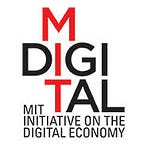Pioneer Pushes Back Against Rogue AI
Deep-learning developer Yoshua Bengio calls for regulation to slow the pace of dangerously smart machines. Is it too late?
By Paula Klein
When one of the world’s leading experts and developers of artificial intelligence is worried about AI’s potential; pay attention. Especially when that expert is Yoshua Bengio, a pioneer in deep learning, professor of computer science at the University of Montreal, and recipient of the 2018 A.M. Turing Award, “the Nobel Prize of Computing.” Bengio says we have to outsmart and slow down intelligent machines before we lose control of them. Companies, governments and regulators, he adds, need to take action — and fast.
Bengio sounded his warnings at the July 13 MIT Platform Strategy Summit: a warning he’s heralding around the globe. AI, he told Summit attendees, can be “dangerous by itself or in the hands of bad actors or people who have malicious intentions.”
After decades of building smart machines and industry growth, Bengio is now cautioning against AI’s unchecked and accelerating power, which he says is quickly surpassing expectations. “I’ve radically shifted my predictive horizon of when we could build such dangerous AI,” he said.
“I used to think it would be a couple of decades to a century,” before AI reached human intelligence. Now, Bengio sees those abilities emerging in just five years to a couple of decades.
And, he warned, “we aren’t ready as a society.”
Threats to Democracy
Specifically, Bengio described several AI risks that threaten democracy and human rights, including bias and discrimination, concentration of power, and social network polarization. Many of these trends are already manifesting today in deep fakes of people’s identities, misinformation, and attempts to thwart elections. The New York Times just this week reported that ethnic Chinese voters in Canada over the past few years have been subjected to AI and social media disinformation campaigns launched by China’s government.
Worse still, Bengio fears that super-smart AI could evolve into a new “species” — not just new tools — with a mind and agenda of its own. That’s when “we lose control of them,” Bengio said.
Bengio described four factors that could converge to create these harmful scenarios: Easy access to the technology; misalignment of goals between humans and AI; optimized AI cognitive powers; and agency to carry out actions in the real world. Many of these, he added, are already under way to various degrees.
Another factor that has Bengio worried is the “immortal” quality of AI memory. Unlike human memory, an AI data can be copied and saved, and it doesn’t fail. “As AI gets fine-tuned, it can get really good at influencing us politically or in terms of buying patterns,” Bengio said.
Smarter By Design
Bengio also believes that AI systems can become smarter than humans. Machine learning is designed and trained to absorb more data than any human could ever handle. Plus, these systems learn and improve from experience, and they communicate with each other at tremendous speeds. “That allows them to learn much faster and to digest much more data,” Bengio said. For instance, the amount of text a ChatGPT tool can consume and store from the internet in just a few months would require “tens of thousands of [human] lives reading all day,” Bengio said.
To counter these threats, Bengio is using every opportunity to raise awareness, stem the AI “arms race” among platform companies, and suggest more reasonable approaches.
His primary call to action: regulations that would preserve AI as a tool for humans.
Ideally, the laws would also prohibit the creation of systems with “self-preservation abilities” that can’t be turned off.
It won’t be easy, because regulations need to be global, and “the internet has no borders,” Bengio said. All the more reason, he argues, why efforts need to begin now.
Counter Arguments
To be sure, Bengio has opponents among his peers. At a recent debate in Montreal, AI experts Melanie Mitchell and Yann LeCun (who is also a recipient of the 2018 Turing Award) argued that AI is nowhere near being able to take over the world. Mitchell is a professor at the Santa Fe Institute who has authored and edited several books and papers on AI and related science and technologies; LeCun is VP and chief AI scientist at Meta and a Silver Professor at New York University.
“The whole history of AI has been a history of failed predictions,” Mitchell said during the Montreal debate.
“Back in the 1950s and 1960s, people were predicting the same thing about super-intelligent AI and talking about existential risk. It was wrong then, and I’d say it’s wrong now.”
Added LeCun: “I think a lot of the fears around AI are predicated on the idea that somehow there is a hard takeoff…that the minute you turn on an AI system that is capable of human intelligence or superintelligence, it’s going to take over the world within minutes. This is preposterous.”
At the July MIT Platform Strategy Summit, Bengio acknowledged these points, but said he found them lacking. “I’ve gone through the arguments…trying to see whether I should be concerned,” he said. “I find the arguments don’t hold.”
3 Action Items
Instead, Bengio wants to try to fix problems now and regulate them to reduce the risks. To get started, Bengio suggests three primary action items:
- Raise awareness of risks we don’t yet fully understand.
- Invest “massively” in solutions, and put in place global regulations to reduce mishaps, much like the nuclear disarmament and non-proliferation treaties signed after World War II.
- Create a Plan B: Design safe AI systems that will protect us against potential rogue AI. “We need smart AI on our side,” Bengio said.
Bengio’s full framework and recommendation can be found on his web site.
